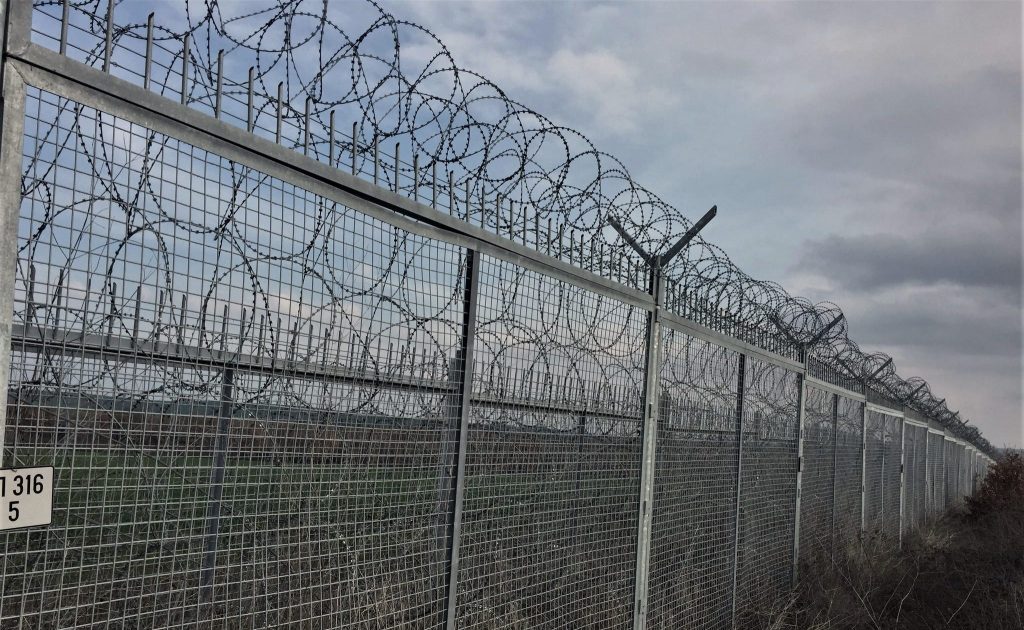21 October – 10 November

Reports of human rights groups on Turkey’s ‘forced’ voluntary return practices and ‘unsafe’ safe-zone not welcomed by Turkish officials | EU mobilises millions of Euros to Turkey for increasing migration control | Still, and once again, Erdoğan threatens the EU with refugees | Increasing crossings also on the Greek-Turkish land border | Bulgaria’s response to irregular crossings at Bulgarian-Turkish border
News&Reports
Reports of Human Rights Groups on Turkey’s ‘Forced’ Voluntary Peturn Practices and ‘Unsafe’ Safe-Zone not Welcomed by Turkish Officials
The Turkish state’s attempt to remove Syrian refugees to so-called safe-zone in Northern Syria have been proven to be unrighteous by several reports released in the past weeks, as the deadline given to unregistered Syrians to leave Istanbul, 30 October, approached.
Human Rights Watch’s report details the hostile and unlawful treatment involved in the arbitrary deports and detentions of Syrians in Istanbul and Antakya between January and September 2019. The report underlines that a significant number of Syrians are being deported against their will to one of the most dangerous areas in Syria, Idlib, where at least 1,089 civilians have been killed since April. HRW invites Turkey’s Interior Ministry to ensure that Turkish authorities do not use violence against Syrians or other detained foreign nationals and to hold any officials using violence to account. – 24.10.2019
Amnesty International’s report also accuses Turkish authorities of forcibly deporting hundreds of Syrian refugees back to war-torn areas in the north of Syria, by using threats, force and deception. The report includes testimonies of refugees who were beaten into signing ‘voluntary return’ documents, and others who signed in order to receive blankets from detention centres. “Returns until now have been anything but safe and voluntary – and now millions more refugees from Syria are at risk” says Anne Shea from AI. – 25.10.2019
Following these, Turkish Directorate General of Migration Management published an on-line press statement on 25th October (in Turkish only) to declare that Amnesty International’s report “does not reflect the truth”. The statement considers such reports to be unfair in light of the great effort and commitment shown by Turkey in hosting 4 million refugees alone while several countries in Africa and Europe have been stages for violence and inhumane conditions against foreigners in detention centers. It is claimed that 364.663 people have returned to Syria voluntarily up to date, and the returns have been carried out in compliance with international law. In another attempt to deny the claims of human rights defenders, the Turkish foreign ministry spokesman Hami Aksoy told to AlJazeera “Our authorities has been carrying out the ‘repatriating process’ in collaboration the UN refugee agency and other non-governmental organisations. Our country has in every opportunity always stressed that refugee returns should be voluntary, secure and in line with the international law.” – 25.10.2019
On 1 November, the day after “the time given to Syrians” was over, Human Rights Association – Turkey (IHD) and We Want to Live Together initiative released their second joint report on Deportations ad Human Rights Abuses towards Refugees (full report available only in Turkish). The report includes a significant number of accounts – received via applications made to IHD by phone or mail – of “voluntary” forced deportations and ill-treatment by police officers, as well as the effects of deportations on family unity, the findings on human rights abuses in working environment, breaches on right to health and a list of demands against all these. IHD mentioned that the situation has turned into a humanitarian crises in Istanbul as the findings imply that “migrants cannot leave their houses for even their basic needs due to the climate of fear”, “the practice of ‘administrative detention’ has turned into ‘forced detention'”, and “voluntary repatriation documents are proven to be invalid considering high number of applications to return to Turkey”, among others. – 01.11.2019
EU Mobilises Millions of Euros to Turkey for Increasing Migration Control:
Maciej Popowski, the European Commission Deputy Director General for Policy and Enlargement Negotiations, has announced in a meeting at Brussels that the EU is preparing to pay Turkey 50 million euros in order to improve the capacities of its coast guard, improve the conditions in migrant detention centers and help refugees to integrate. The money will be drawn from a budget meant to prepare Turkey for its accession to the European Union and from a separate “peace and stability” fund, he said. – 06.11.2019
Another EU commissioner, Christos Stylianides, had already announced earlier that €663 million will be provided in humanitarian aid for major cash support (ESSN), education and healthcare projects under the EU Facility for Refugees in Turkey. – 31.10.2019
Still, and Once Again, Erdoğan Threatens the EU with Refugees:
Speaking alongside Hungary’s right wing Prime Minister Viktor Orban on 7 November, Erdoğan told reporters the refugees will be allowed into Europe unless the EU provides more support “Whether we receive support or not, we will continue to aid the guests we are hosting. But, if this doesn’t work out, then we will have to open the doors,”
Increasing Crossings also on the Greek-Turkish Land Border:
InfoMigrants reports on crossings across the Evros River as well as push-backs, violent and illegal treatments by authorities and ‘masked men’. Although there are mixed reports about how many people are crossing via this border, the numbers provided by IOM indicate a steady increase in the last months, from 255 arrivals in May to 1,233 in September. – 06.11.2019
Bulgaria’s Response to Irregular Crossings at Bulgarian-Turkish Border:
Bulgarian Ministry of Interior confirmed that Border Police officers prevented 2,122 attempts of ‘illegal’ entry at the border with Turkey between 1 January and 31 October 2019, and 206 people were detained. The ministry has also approved the emergency response plan as a result of “increased migration pressure” along Bulgaria’s border with Turkey, which will probably result in further militarization and surveillance technologies to be implemented along the border. – 12.11.2019
